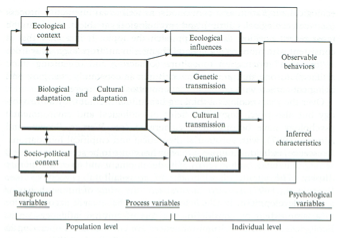Sign up for FlowVella
Sign up with FacebookAlready have an account? Sign in now
By registering you are agreeing to our
Terms of Service
Loading Flow

Family
Families are not often the objects of study in the field of culture. However, if you develop your values in your pre-adult years and those values do not or hardly change afterwards, then the role of family in the development of individual culture is quite obvious. This is often stressed by the students in Maastricht in their papers: the family as a source of values, of giving you a starting point for life, as a key mover in socialisation.
One of the interesting books in this field is Families Across Cultures, A 30-Nation Psychological Study (Georgas, 2006). It starts by clearly showing the difficulty of defining a family. Is a family at least two generations and hence, a married couple without children not a family? Could it be more than two generations (grandparents, parents and children in one house) or is that an extended family? Does only a married couple count or also two people / parents living together? And should the parents be a man and a woman or could they be homosexuals or lesbians?
What about a single parent? Studying ‘families across cultures’ is like a zoo with different animals but all with the same name. The ecocultural framework of this publication has been copied to demonstrate the difficulties this research has been facing.
The culture of a specific family would be an interesting topic to study. Some families keep traditions and expressions for generations, even if each generation is exposed to a 50% external contribution; the spouse. Just because most Western countries are patrilineal (the family name tied to men), these cultural aspects are discussed in that way. This implies that we tend to forget how daughters take on these traditions or how women adapt to them (or try to bring their own to the fore). This idea of a culture of a specific family may be found implicitly in some biographies, e.g. of a noble family.
Hence, we do know recognise the importance of family in shaping and transmitting culture but much of this process remains a black box.

Parents are also very influential in culture shaping, but often do not get enough credit.

